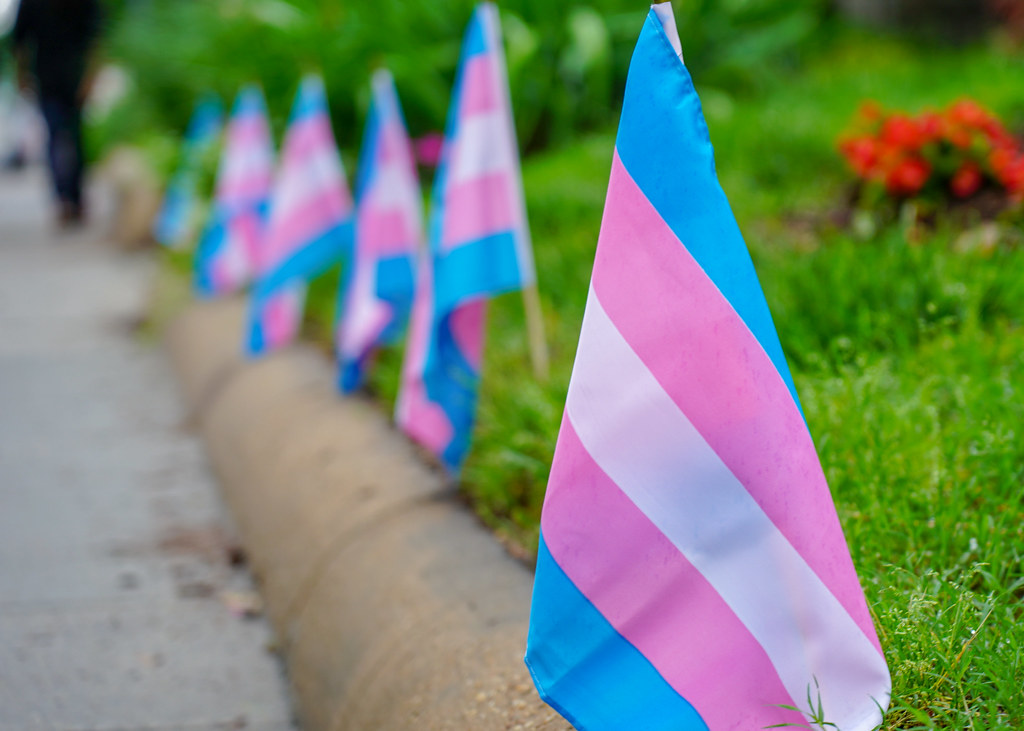On Saturday morning 27 March 2021, as the Wellington clouds rolled back and the morning drizzle cleared, about 500 of Wellington’s LGBTQIA+ community gathered at Frank Kitts Park for the Pride Hīkoi. This community event was the culmination of a two-week Wellington Pride Festival, a community-led celebration of rainbow identity. According to the Festival website, ‘Wellington Pride Festival traces its history back to the first Newtown Lesbian and Gay Fair in 1986, organised as part of the campaign for the Homosexual Law Reform Bill which passed on July 9th, 1986.’ Thus, the Wellington Pride Festival this year celebrated 35 years of community connection and parades which have taken various names including Out In The Square and Out In The Park.
In 2018, Wellington held the first of a series of annual events titled the Wellington International Pride Parade (WIPP). Although also led by some queer people, this event was separate to the community-led Pride Hīkoi. It appears that the goal of WIPP was to hold a large event featuring arranged street closure, and allow inclusion of controversial groups such as uniformed police officers. Concerns were expressed about a lack of community consultation, noting the move ‘sends a message to those in the community who are vulnerable to police brutality that they are not welcome.’ WIPP nonetheless continued, and grew with increasing corporate sponsorship. The 2019 WIPP included the Chief of the New Zealand Defence Force (NZDF), an NZDF light tank, the Police Commissioner, and approximately 60 uniformed police officers. Increasingly, community groups including Gender Minorities Aotearoa and UniQ withdraw any support or involvement in the WIPP, and this was followed by the withdrawal of some corporate sponsorship, presumably because growing controversy no longer fitted a simple advertising agenda rather than any genuine concern for the most vulnerable of the queer community. WIPP was suspended for 2021, although the event’s website does not acknowledge any political controversy or community concerns as the reason for such postponement.
In stark contrast, the organisers of the Pride Festival and Pride Hīkoi have done a fantastic job consulting with and involving the community with a series of hui which included specific consultation with Black, Brown, Indigenous and People of Colour (BBIPOC) rainbow community members, an opening event He Tangata celebrating of the intersection of queer and indigenous culture, inclusion of Māori Wardens, and ensuring an accessible hīkoi route.
Issues of queer visibility and representation are, of course, complex. I must acknowledge, as a queer person, that WIPP 2019 was my first significant involvement in a pride event, and that this connection occurred through my employer and not through the community. Therefore, I can’t deny WIPP may have been a useful entry-point into the community for other queer people too. The community-led Pride Festival doesn’t exactly represent class-based socialist politics either. Behind the community support groups, anarchist stalls, and craftspeople selling hand-made products, were Rainbow Labour and Rainbow National political party stalls representing what is at best a reformist offering for a more palatable capitalism. Nonetheless, our individual relationships with the community and collective political efforts are much more closely aligned with the community-led Hīkoi and Festival than with the more right-oriented WIPP.
The Pōneke branch of the International Socialist Organisation fielded a contingent of eight members, including queer people and allies marching in solidarity. We carried banners reading ‘Liberation for All’ and ‘Solidarity’ with the transgender and rainbow flags respectively painted on those banners, and also carried placards reading ‘Trans Rights: Solidarity not Division’ and ‘Back the BDMRR Bill’. The latter is a piece of legislation which would make it easier for transgender people to change official documentation to match their identity, but which has been stalled due to anti-trans actions. Auckland Pride organisers posted ‘Pride March Calls’ to their social media which included a call to pass the BDMRR Bill. In Wellington there was a festive atmosphere, but there was an absence of such public calls. A number of people, unaware of the BDMRR Bill, asked us about our placards. This reinforces twofold the value for working-class rainbow people of making clear and public our political stances at these events: we show community members that we stand in solidarity; and we ensure related important political issues remain visible and are not forgotten. And the queer folk amongst us are energised and grow stronger as a result.









